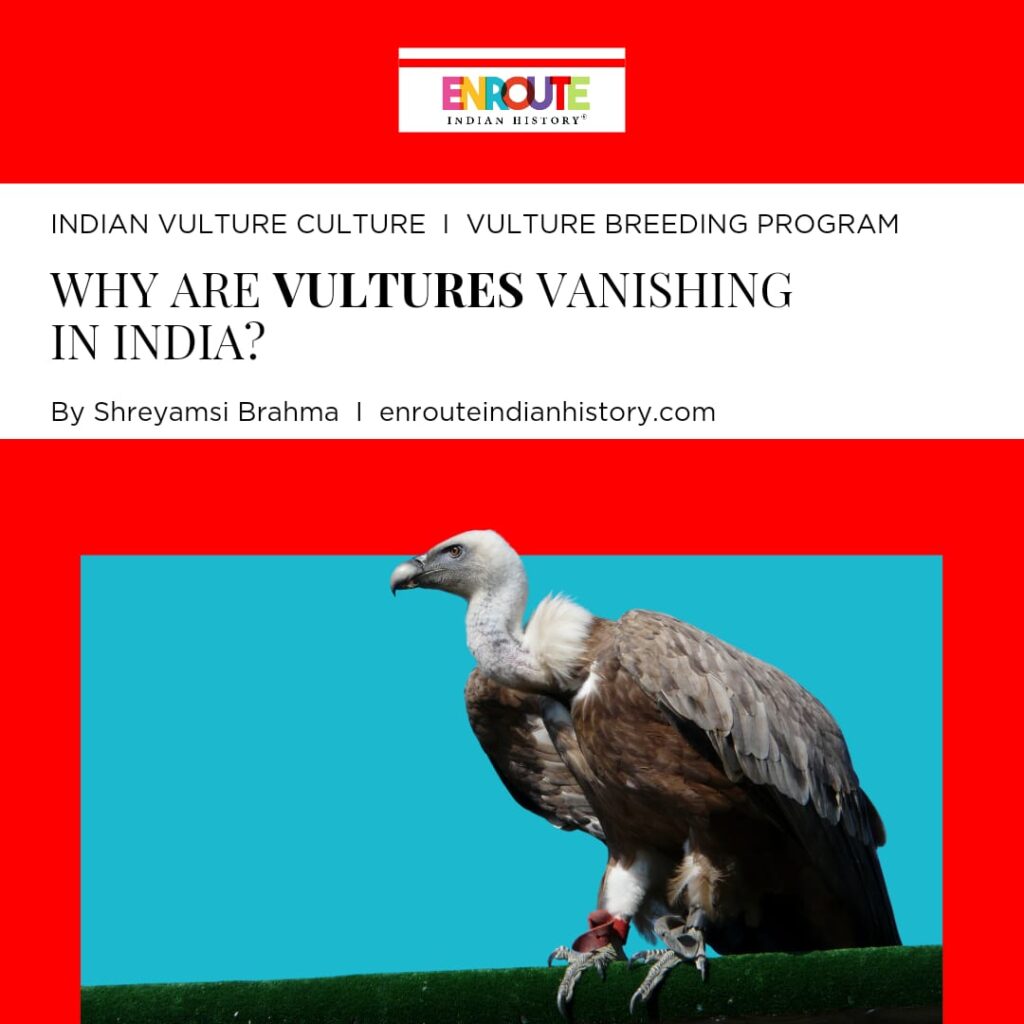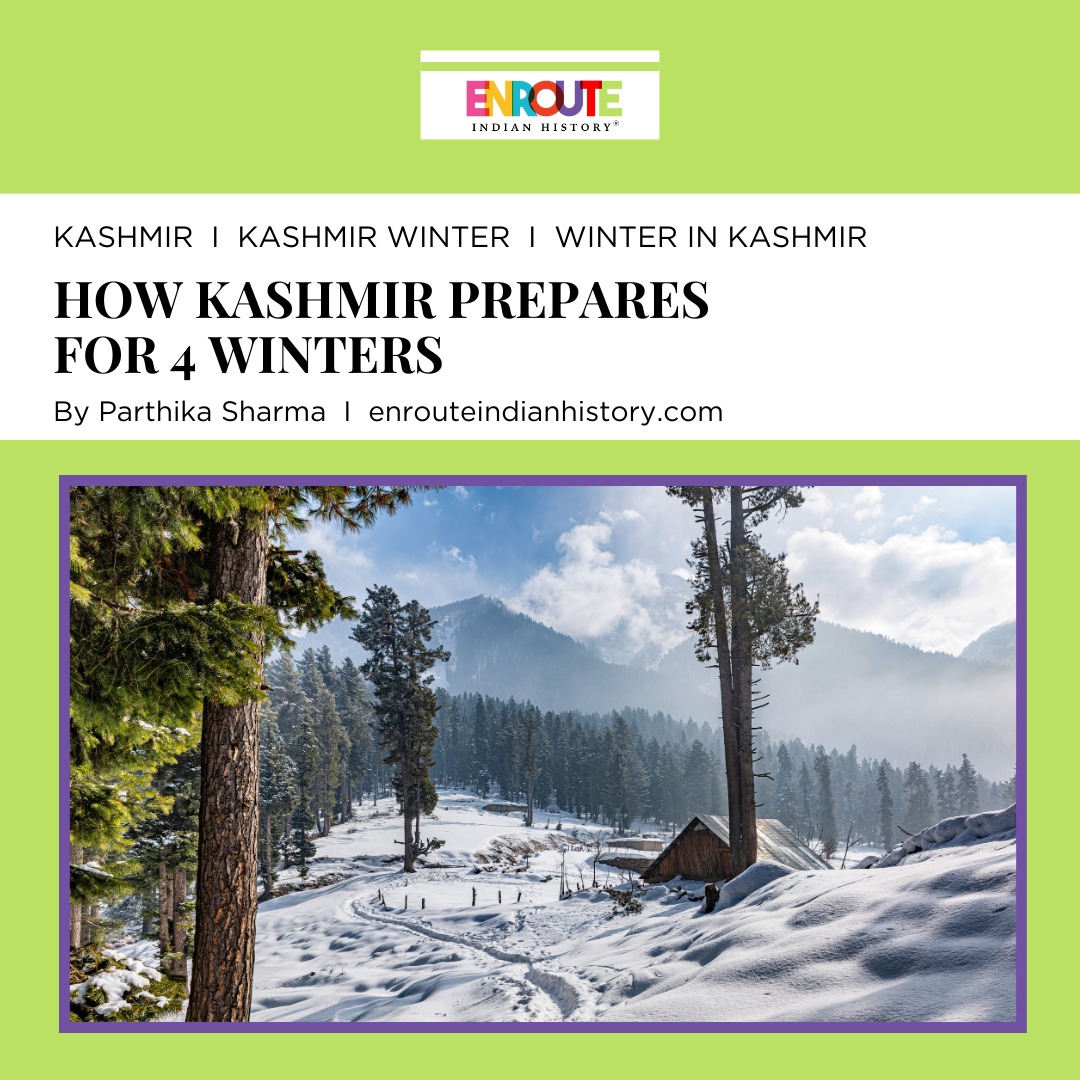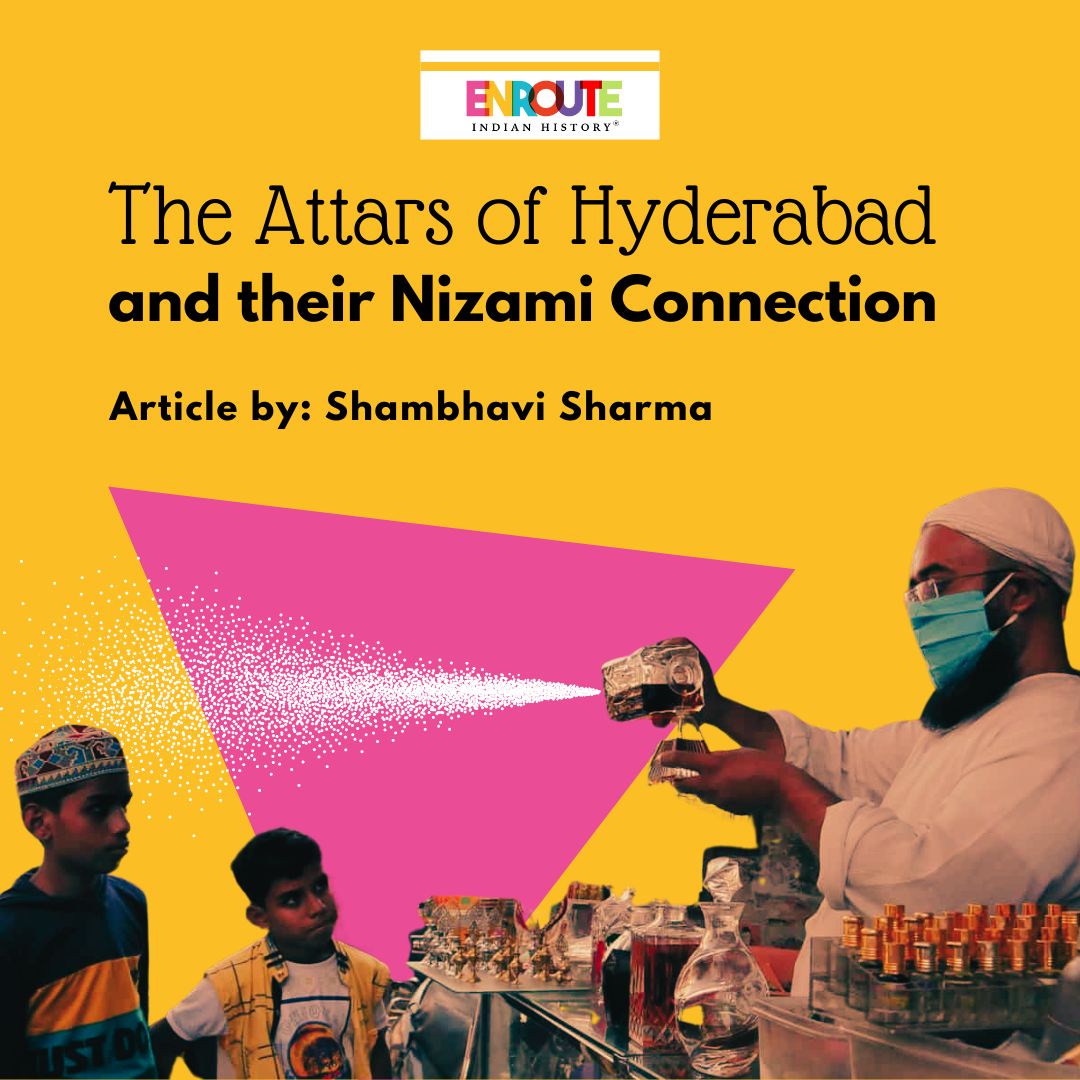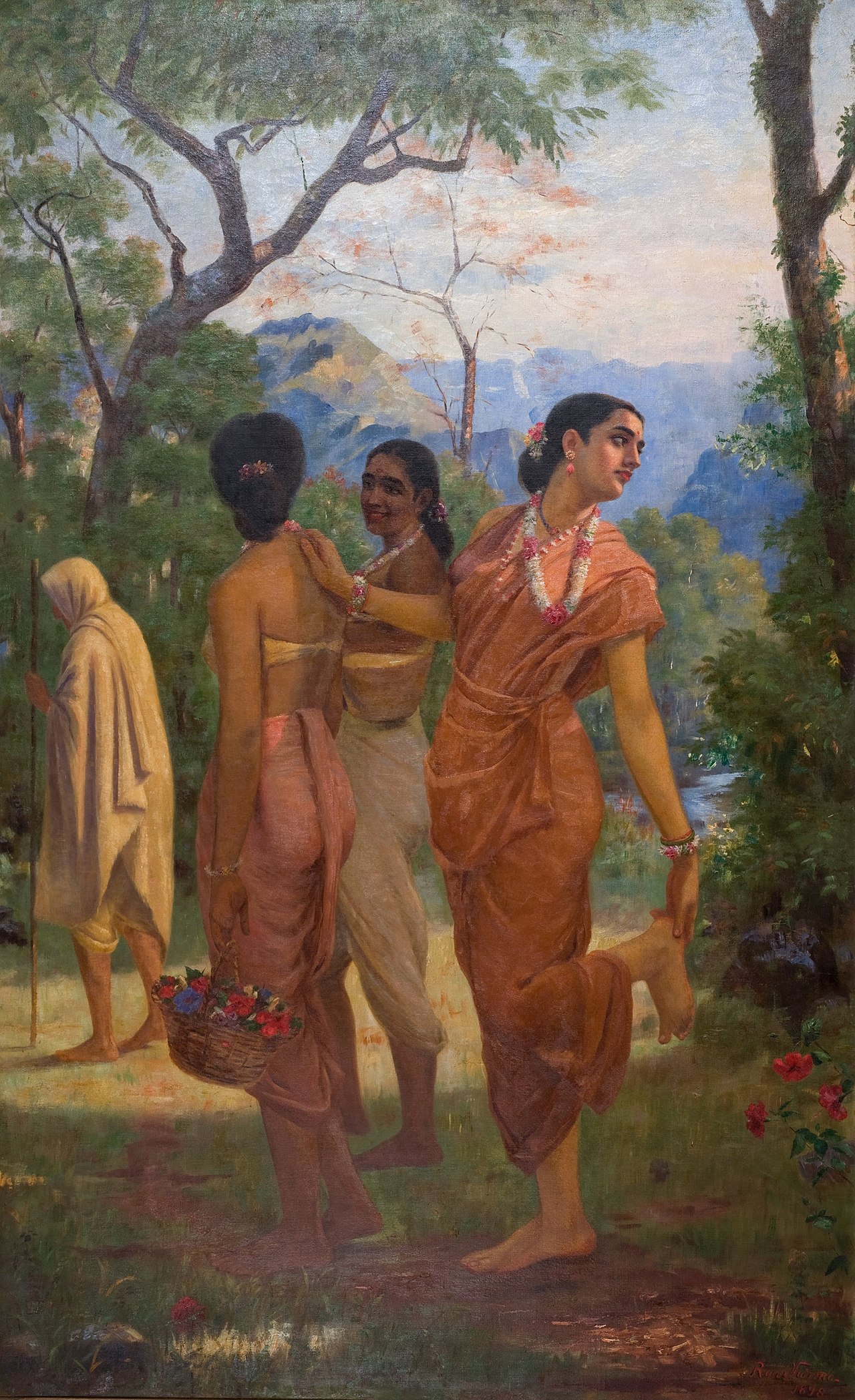
In this article, we look into the crisis of vulture in India. With a drastic reduction in the population, fueled by factors like the persistent use of harmful veterinary drugs, habitat destruction, and emerging threats, this decline poses not only ecological repercussions but also significant risks to public health. Against this backdrop, we explore the multifaceted challenges faced by India’s vultures and the crucial initiatives underway to arrest and reverse this alarming trend.

Vulture- side view, Image Courtesy: Wikimedia Commons
The latest State of India’s Birds (SoIB) report, released towards the end of August, revealed yet more alarming trends for vulture species in the country. Vultures have catastrophically declined in India since the 1990s – from a population of millions to now just tens of thousands — with the Indian vulture crisis labeled by many conservationists as one of the most rapid and wide-scale species decline ever seen in birds.
The vulture population in India is undergoing a severe decline, While nine vulture species occur in India, it is the White-rumped Vulture, Indian Vulture, and Red-headed Vulture that have suffered the greatest long-term declines (98%, 95%, and 91% respectively) since the early 2000s. The Egyptian Vulture and the migratory Griffon Vulture have also declined considerably, but not as catastrophically, according to data from the SoIB report. Most of these species are listed as critically endangered in the IUCN Red List, the most comprehensive information source on the global conservation status of animal, fungi and plant species. This concerning trend has extended to Nepal and Pakistan, raising fears of spreading to other griffon vultures in Europe and Africa.

White Rumped Vulture, Image courtesy: Wikimedia Commons

Indian Vulture, Image Courtesy: Wikimedia Commons
This decline is alarming due to the crucial role vultures play in maintaining ecological balance. Vultures are known to be efficient scavengers, capable of quickly disposing of dead and decaying tissues, reducing carcasses to bones in a short time… The decline of vulture populations has resulted in less efficient scavengers such as rats and dogs taking their place, causing significant issues with disease in the affected regions. Unlike vultures, which act as the ultimate hosts for pathogens due to their potent stomach acid, dogs and rats serve as reservoirs for diseases. Consequently, these animals have become the primary scavengers in India. Additionally, the surge in feral dog populations has contributed to a rise in the number of rabies cases in humans and also infections in poultry and domestic birds.
In Asia, especially in India, vultures are essential for environmental health, managing carcasses from a large number of wild mammals, unorganized disposal sites, and extensive livestock. Additionally, vultures hold cultural significance for the Parsee community, who traditionally rely on scavengers for body disposal. However, the decline of vultures has disrupted this system, creating challenges for the Parsees. The Parsee community, nonetheless, has adapted to the vulture decline by using solar panels with reflectors to hasten the decomposition of their dead, aligning with their beliefs while addressing the practical challenges posed by the absence of vultures.
Several factors contribute to the decline in vulture populations, including the veterinary anti-inflammatory drug diclofenac, which is fatal to vultures. This veterinary drug, given to animals to alleviate joint pain, has proved to be lethal to vultures when ingested from the carcasses of diclofenac-treated cattle. “Even minimal amounts of the drug led to kidney failure and visceral gout in vultures.” Between 1993 and 2000, the Indian vulture population, specifically “Gyps bengalensis”, experienced a mysterious and drastic decline of over 97%. Researchers investigated various theories, including infectious disease and food shortage, but visceral gout, indicative of kidney failure, hinted towards chemical exposure. In 2004, a study revealed significant levels of diclofenac, a non-steroidal anti-inflammatory drug (NSAID), in the tissues of deceased vultures, establishing it as the primary cause of the population collapse.
Despite the prohibition of veterinary diclofenac usage in 2006 by The MoEFCC under the Action Plan for Vulture Conservation 2006 and the Drugs Controller General of India (DCGI) also banned the veterinary use of diclofenac in the same year, the SoIB report highlights that the ban has not completely eradicated its usage. Consequently, vulture populations have continued to dwindle since 2016. Additionally, there is no evidence suggesting that vultures face threats from other non-steroidal anti-inflammatory drugs (NSAIDs), such as aceclofenac, ketoprofen, and nimesulide, which were introduced as substitutes for diclofenac. The emergence of newer threats is particularly concerning for Indian Vultures, as their nesting habitats face destruction due to activities like quarrying and mining.
Another concern is the introduction of new environmental chemicals, potentially by-products of pesticides or other sources, which could affect larger areas and pose a threat to vultures. Additionally, the transmission of diseases among crowded groups of Gyps vultures, especially those feeding on larger carcasses, may contribute to the decline, while other vulture species like the Egyptian vulture and King vulture appear less susceptible due to differences in feeding habits. Mass vulture deaths reported during hot summer months may be linked to fledgling deaths coinciding with increased temperatures. The sheer size of vultures poses risks, as collisions with aircraft can occur, potentially endangering flight patterns.
Various initiatives aimed at preserving the vulture population in India have been launched However, according to the SoIB report, effective measures to arrest and reverse vulture declines necessitate urgent action to curtail the veterinary use of harmful NSAIDs. Addressing this issue may require a combination of bans, educational campaigns, and the promotion of alternative practices. Hence, efforts like the Vulture Count and International Vulture Awareness Day become even more critical in this context.
References:
Dr. AK Singh, 2003, “Indian Vultures on The Brink of Extinction” [ONLINE], FAO, Available at: https://www.fao.org/3/XII/0331-B3.htm
Nitin Sreedhar, 2023, “Why Saving The Vultures Matters” [ONLINE], Livemint, Available at: https://lifestyle.livemint.com/amp/smart-living/environment/vulture-count-wwf-india-wildlife-citizen-science-111693409947151.html
Anurag Kumar, 2022, “Vulture Crisis in India” [ONLINE], IYOPS, Available at: https://www.iyops.org/post/vulture-crisis-in-india
Shira Joudan (GCI), Alexis Wormington (ToxSquad), 2018, “The Indian Vulture Crisis and its Relationship to Sustainable Chemistry”, [ONLINE], Green Chem UOFT, Available at: https://greenchemuoft.wordpress.com/2018/05/03/the-indian-vulture-crisis-and-its-relationship-to-sustainable-chemistry/
2023, “WWF India’s Vulture Estimation Program” [ONLINE], WWF, Available at: https://birdcount.in/event/wwf-india-vulture-count/#:~:text=Vulture%20Estimation%20Program%20is%20a,participate%20in%20the%20vulture%20count
2020, “Vulture Action Plan” [ONLINE], Dristhi IAS, Available at: https://www.drishtiias.com/daily-news-analysis/vulture-action-plan
- March 27, 2024
- 11 Min Read


























